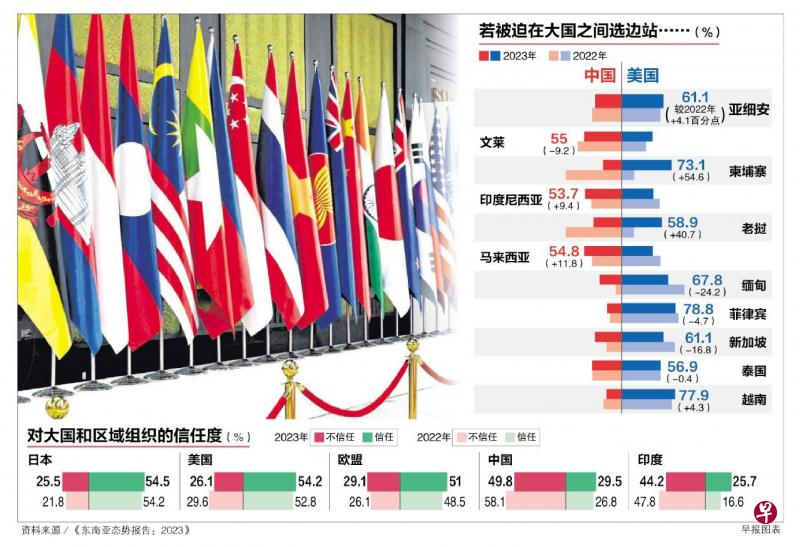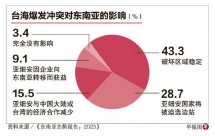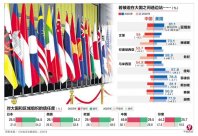
Most respondents in Southeast Asia are worried about the situation in Asia under the Sino -US game.73 % of the respondents were worried that Asians would become a big country's game field and became a "agent" of the great power. Compared with 61.5 % last year, it increased significantly by 11.5 percentage.
The game of China and the United States in this region is increasingly heated, which has caused the worries of the Asian -to -A -safe country to become a "agent" of a large country.Observer believes that Ya'an must become more united and stronger, and take the initiative in regional affairs to gain the respect of the great power.
Singapore's Yusov Isa Eastern South Asian Research Center Ayanan Research Center issued a Southeast Asian situation report on Thursday (February 9): 2023, analyzing the people's views on regional geopolitical issues in Southeast Asia.
According to the results of polls, most Southeast Asian interviewees are worried about the situation in Asia under the game of China and the United States.73 % of interviewees are worried that Asians will become the gaming field of the great power game and become a "agent" of the great powers, which has increased significantly from 61.5 % last year by 11.5 percentage points.
The former Indian national security adviser Mei Nong Mei Nong said at the online forum of the report conference that Asia's Da'an has so far been maintaining a balance between China and the United States, and does not choose the side station.However, he admits that competition between China and the United States will cause more problems, and Asian'an must make more preparations.
Mei Nong believes that most large powers hold the world view of "classization", so Asia Gyeongan must become stronger, and it is more united in response to regional affairs to get the attention of great powers.He said that Asia can play a appeal to deal with the issue of Myanmar and the sovereignty disputes of the South China Sea."I think both China and the United States will pay more attention to unity, positive and forward -looking Asianan ... but Asian'an has not fully played this aspect."
82.6 % of the respondents are worried that the response of Ya'an is slow and does not work
However, whether Ya'an can unite and be questioned.60.7 % of the respondents expressed concern about Asians' more and more split. 82.6 % even referred to the slow response of Asia in Asia and could not work, and could not cope with changes in political and economic development.
However, Professor Xu Tongmei, a patrol ambassador to the Ministry of Foreign Affairs of Mei Nong and the Ministry of Foreign Affairs of Singapore, did not agree that Yajia could not play a role.Mei Nong pointed out that Ya'an was established in a difficult environment, and the changes in geopolitics over the years have also shown good adaptability.
Xu Tongmei defended that it was an unfair hypothesis that the response of Yaxian's response and lack of effect.Asiabean is relatively diverse, and member states have different interests, so it is necessary to negotiate to reach a consensus.Facing the crown disease epidemic, Yajian's response was quite rapid, and quickly passed the economic recovery framework. After Myanmar had a coup the year before, Ayanan also quickly passed five points of consensus.
Most of them believe that the cohesion should be strengthened to resist the pressure of the two countries
Maintaining neutrality between China and the United States is a member of the Member State of Asia, and it has repeatedly reiterated its position, and has also obtained the recognition of the people.As in the past two years, most interviewees believe that Ya'an should strengthen toughness and cohesion to resist the pressure (45.5 %) of China and the United States (45.5 %), or insist on not standing (30.5 %).
It is difficult for Yaxian to maintain a neutrality and must be selected from the border stations to decrease from 11.1 % last year to 6 %.Rise to 18.1 %.
But if Southeast Asian countries are forced to choose a border station, 61.1 % of respondents tend to choose the United States, an increase of 4.1 percentage points from 57 % last year;38.9 %.



